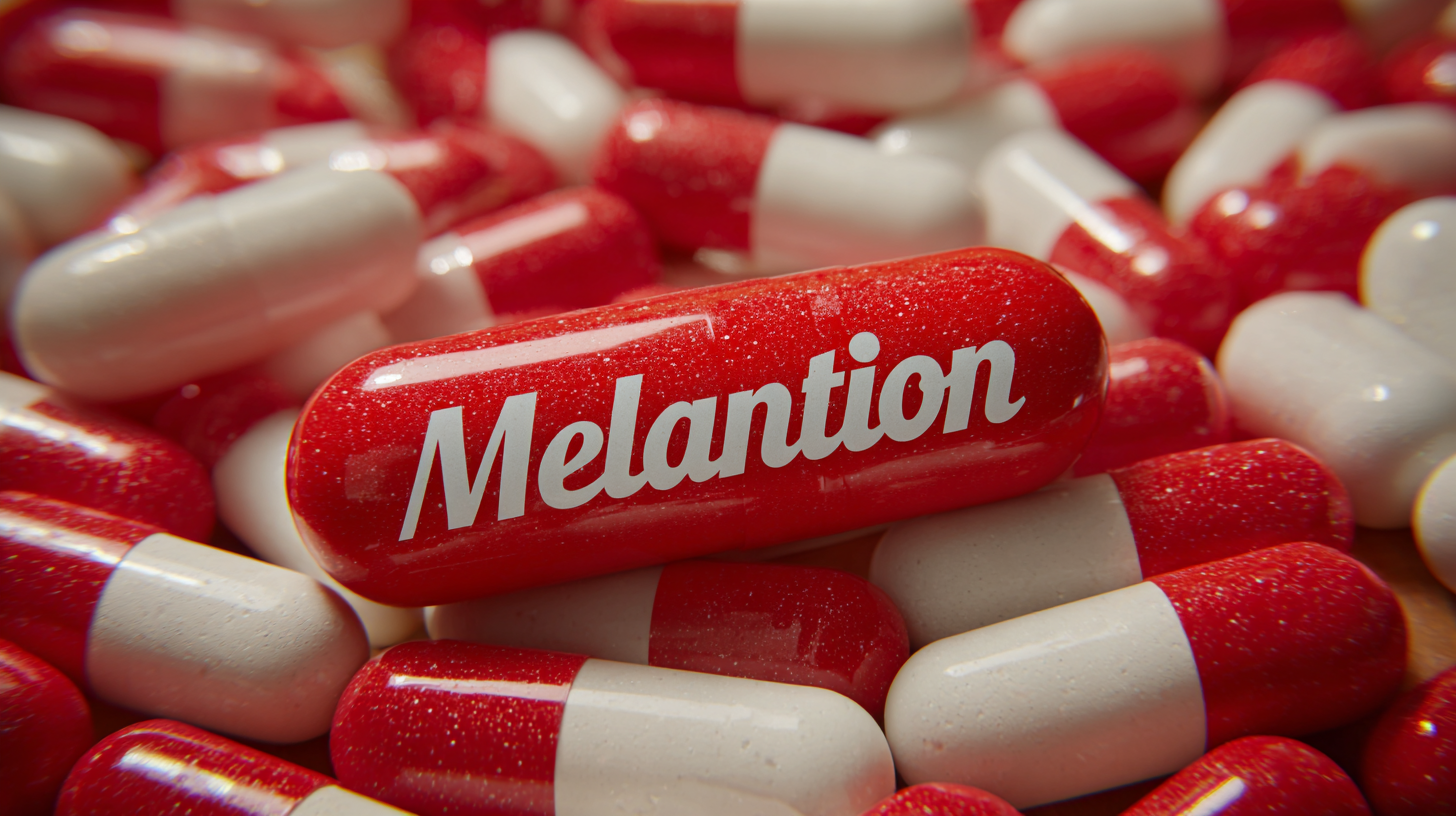50% Response rate
5 Essential Tips for Choosing the Best Melatonin Pills for Your Business Needs
In today’s fast-paced world, getting quality sleep is essential for maintaining productivity and overall health, making melatonin pills a popular choice for many individuals and businesses alike. As you navigate the diverse market of melatonin supplements, it’s vital to recognize that not all products are created equal. With manufacturers claiming various benefits and quality standards, how do you ensure that you're selecting the best melatonin pills to meet your specific business needs? In this blog, we present five essential tips that will guide you through the process of choosing high-quality melatonin pills, emphasizing the importance of reliability and consistency, particularly from globally trusted Chinese manufacturers. By following these insights, you can confidently make informed decisions that not only enhance the well-being of your clients but also support your business objectives.

Understanding Different Types of Melatonin: Natural vs. Synthetic Forms
When selecting melatonin pills for your business needs, it is crucial to understand the differences between natural and synthetic forms of melatonin. Natural melatonin, often derived from animal sources or plants, has been shown to more closely mimic the body’s own production of the hormone, promoting better sleep quality and fewer side effects. According to a report from the National Institutes of Health, natural melatonin supplements are generally more bioavailable, meaning that they are more readily absorbed by the body compared to synthetic alternatives.
Tip 1: Always check the source of melatonin in your supplements. Opt for products that specify natural sources, which may enhance efficacy and reduce the risk of adverse reactions.
On the other hand, synthetic melatonin is produced in a lab and can provide controlled dosages, which is particularly beneficial for businesses looking to maintain consistency in their products. However, it is essential to consider that some users report increased instances of side effects with synthetic melatonin. A market analysis by the American Sleep Association indicates that about 30% of users prefer natural melatonin for its perceived safety and effectiveness.
Tip 2: Look for third-party testing to ensure the quality and potency of the melatonin being offered. This can help establish trust with your consumers who are increasingly informed about their supplement choices.
5 Essential Tips for Choosing the Best Melatonin Pills for Your Business Needs - Understanding Different Types of Melatonin: Natural vs. Synthetic Forms
| Type of Melatonin | Source | Dosage Form | Typical Dosage | Pros | Cons |
|---|---|---|---|---|---|
| Natural Melatonin | Animal-derived (e.g., pineal glands) | Capsules, Tablets | 0.5mg - 5mg | Bioidentical to human melatonin | Higher cost, potential for allergens |
| Synthetic Melatonin | Lab-created | Tablets, Gummies, Sprays | 1mg - 10mg | Widely available, usually less expensive | May vary in effectiveness, possible impurities |
| Extended Release Melatonin | Synthetic | Capsules, Tablets | 2mg - 10mg | Sustained release for longer effects | Delayed onset, may cause morning drowsiness |
| Liquid Melatonin | Synthetic or Natural | Liquid Drops | 1mg - 10mg per serving | Fast absorption, customizable dosage | Shorter shelf life, measurement accuracy |
| Gummy Melatonin | Synthetic | Gummy | 1mg - 5mg | Palatable, easy to take | Higher sugar content, may contain artificial flavors |
Evaluating Melatonin Dosages: How Much is Right for Your Business Needs?
When it comes to selecting melatonin pills for your business needs, understanding the appropriate dosage is crucial. Melatonin is a hormone that regulates sleep-wake cycles, and its effectiveness can vary significantly depending on the amount administered. For adults, dosages typically range from 1 to 5 mg, but individual responses can differ. It's essential to consider the target demographic of your business—ages, health conditions, and lifestyle factors all play a role in determining the right dosage.
Evaluating the specific needs of your customers will guide you in choosing the right melatonin formulation. For instance, if your business caters to individuals with chronic sleep issues, lower doses may not suffice, and a product with higher potency could be necessary. Conversely, offering lower dosages might be more suitable for first-time users or those seeking occasional help with sleep. By conducting thorough research and possibly even customer surveys, you can identify the most appropriate dosage that aligns with your customer base, ensuring that the melatonin pills you provide genuinely meet their needs for better sleep health.
Melatonin Dosage Evaluation for Business Needs
Assessing Melatonin Purity and Ingredients: Importance for Consumer Health
When selecting melatonin supplements for your business needs, it is crucial to assess the purity and ingredients extensively to ensure consumer health and satisfaction. According to recent expert reviews, the best melatonin supplements emphasize transparency in their ingredient lists, often highlighting the source of their melatonin and any additional components included in the formulations. For instance, some supplements may incorporate botanical extracts aimed at promoting relaxation and better sleep cycles, which can enhance the effectiveness of melatonin itself.
In 2025, industry reports indicate that consumers are not only looking for effective sleep aids but are also becoming increasingly aware of potential contaminants or additives in their supplements. Purity testing and certifications from independent third parties have become essential features that discerning buyers consider. A recent survey of registered dietitians found that 68% of respondents recommend melatonin products that are verified for purity and potency, as this assurance directly links to improved consumer trust and health outcomes. Thus, ensuring that your melatonin products are both effective and pure is paramount for fostering a loyal customer base.

Analyzing Market Trends: Consumer Preferences for Melatonin Supplements
As the demand for melatonin supplements continues to grow, understanding consumer preferences becomes crucial for businesses in the health and wellness sector. According to a report from Grand View Research, the global melatonin market is projected to reach approximately $1.1 billion by 2025, driven largely by an increasing awareness of sleep disorders and a rising tendency towards self-medication. This trend underscores the importance of aligning product offerings with consumer needs, particularly among millennials who prefer natural over artificial sleep aids.
Additionally, research from Statista indicates that about 32% of consumers prefer melatonin products in gummy form, highlighting the trend towards more palatable and convenient supplement formats. Furthermore, the demand for organic and non-GMO certifications plays a significant role in purchasing decisions, with a study showing that over 50% of consumers are willing to pay a premium for these features.
Businesses looking to capture market share should prioritize these consumer preferences, focusing on product formulation and presentation, while also staying informed about broader market trends to enhance their competitive edge.
Compliance and Regulations: Navigating the Legal Landscape of Melatonin Sales
Navigating the legal landscape of melatonin sales is essential for any business seeking to enter this lucrative market. According to a report by the Nutrition Business Journal, the melatonin supplement industry has seen significant growth, with sales reaching approximately $1 billion in the U.S. alone as of 2022. However, with this growth comes a complex array of regulations and compliance requirements that must be addressed to avoid costly penalties.

The FDA currently classifies melatonin as a dietary supplement, which means it is subject to the Dietary Supplement Health and Education Act (DSHEA) of 1994. This regulatory framework mandates that manufacturers ensure their products are safe, properly labeled, and contain the ingredients listed on their labels. Additionally, businesses must stay informed about state-specific regulations, as some states impose stricter rules regarding the sale of melatonin, particularly concerning age restrictions and marketing claims. Failure to comply with these regulations not only jeopardizes sales but can also lead to legal repercussions. Therefore, conducting thorough due diligence on both federal and state requirements is crucial for any business planning to sell melatonin supplements.